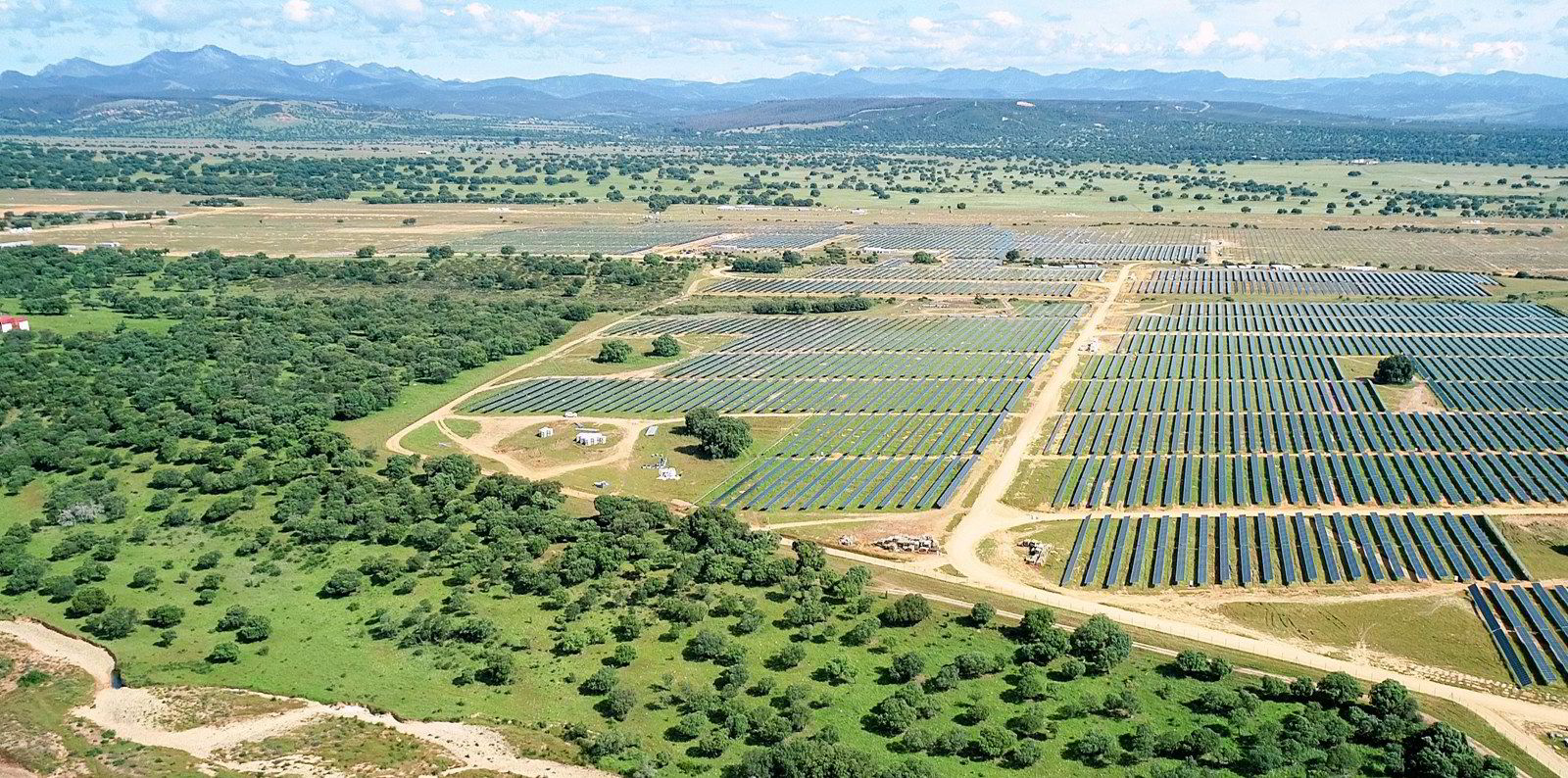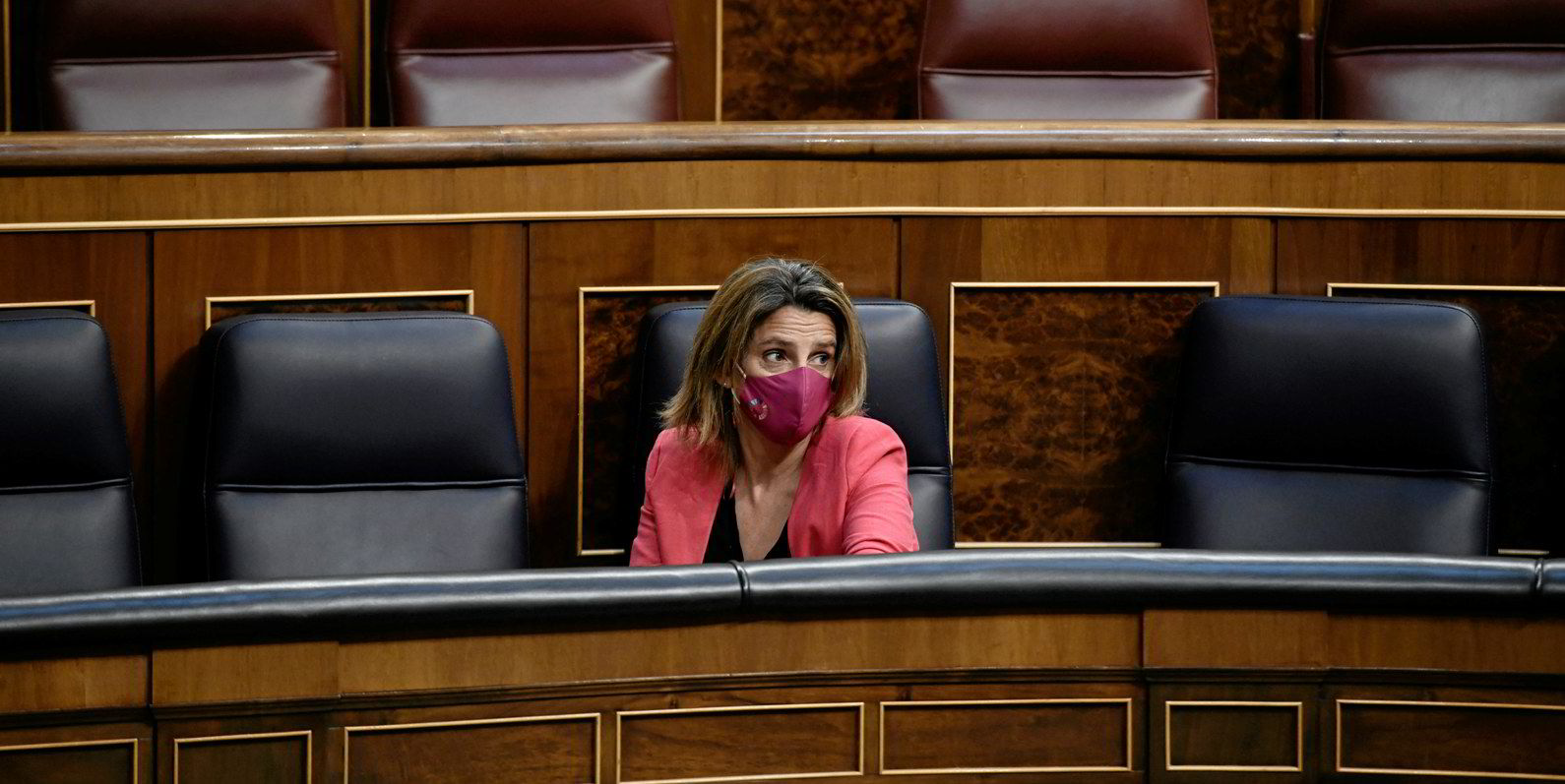Transitioning Spanish utility Repsol has switched on its largest-ever PV farm, with the 264MW Valdesolar project expected to be fully operational by the third quarter of this year.
At full power, Valdesolar, being developed at a cost of €200m ($235m), will provide electricity to some 140,000 homes in the province of Badajoz in the west of Spain, saving over 210,000 tons of CO2 emissions a year.
Project first power comes on the heels of the start-up in June of Repsol’s first PV complex, the 126.6MW Kappa, which is made up of a trio of projects, Perseo Fotón 1-3, being brought online in sequence in the central Spanish province of Ciudad Real.
Along with Valdesolar and Kappa, Repsol has third PV project in Spain, the 204MW Sigma, in the southern province of Cádiz.
María Victoria Zingoni, Repsol's executive managing director of client and low-carbon generation, and the company’s executive director of renewables, João Costeira, visited the Valdesolar projet site on the occasion of generation start-up.
In the wind sector, Repsol recently broke ground on its first project in Spain, the giant 860MW Delta 2 in the north-eastern region of Aragón, production from which will be dovetailed into that of the operational 335MW Delta 1.
The company also the 175MW PI wind farm under development in the northern Spanish provinces of Palencia and Valladolid.
Repsol aims to reach a net zero emissions by 2050. To achieve that, the company targets to develop 7.5GW of “low-emissions generation” capacity – a definition that include fossil gas – by 2025 and double that by 2030.
In June, the company made its first foray into the US renewables market with the purchase of 40% stake in solar power and battery storage developer Hecate Energy, which currently has portfolio of projects totalling more than 40GW.



